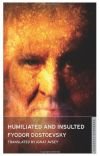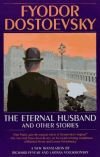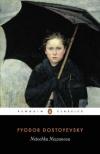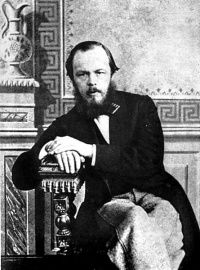費奧多爾·米哈伊洛維奇·陀思妥耶夫斯基

The narrator and protagonist of Dostoevsky’s novel The Adolescent (first published in English as A Raw Youth) is Arkady Dolgoruky, a na•ve 19-year-old boy bursting with ambition and opinions. The illegitimate son of a dissipated landowner, he is torn between his desire to expose his father’s wrongdoing and the desire …

The Grand Inquisitor is a parable in Fyodor Dostoyevsky's novel The Brothers Karamazov. It is told by Ivan, who questions the possibility of a personal and benevolent God, to his brother Alyosha, a novice monk. The Grand Inquisitor is an important part of the novel and one of the best-known passages in modern …

Oscar Wilde claimed that Humiliated and Insulted is "not at all inferior to the other great masterpieces," and Friedrich Nietzsche is said to have wept over it. Its construction is that of an intricate detective novel, and the reader is plunged into a world of moral degradation, childhood trauma, and, above all, …

From Richard Pevear and Larissa Volokhonsky, the highly acclaimed translators of War and Peace, Doctor Zhivago, and Anna Karenina, which was an Oprah Book Club pick and million-copy bestseller, The Eternal Husband and Other Stories brings together five of Dostoevsky’s short masterpieces.Filled with many of the themes …

The Village of Stepanchikovo, also known as The Friend of the Family, is a novel written by Fyodor Dostoyevsky and first published in 1859.

Netochka Nezvanova is Fyodor Dostoyevsky's first but unfinished attempt at writing a novel. It translates to "nameless nobody.". The first completed section of the book was published in the end of 1849. According to translator Jane Kentish, this first publication was intended as "no more than a prologue to the novel". …

On the Eve is the third novel by famous Russian writer Ivan Turgenev, best known for his short stories and the novel Fathers and Sons. Turgenev embellishes this love story with observations on middle class life and interposes some art and philosophy. Nikolay Dobrolyubov was critical of On the Eve, offending Turgenev.

 English
English Español
Español Deutsch
Deutsch


